Space
Sign up for our newsletter
We summarize the week's scientific breakthroughs every Thursday.
-
 Astronomy
AstronomyFaint, distant galaxies may have driven early universe makeover
Gravitational lensing has revealed extremely faint galaxies in the early universe, suggesting these tiny galaxies were responsible for cosmic reionization.
-
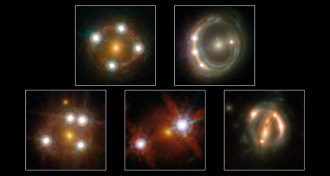 Cosmology
CosmologyNew data fuel debate on universe’s expansion rate
Quasar observations add to discrepancy in measurements of the universe’s expansion speed.
-
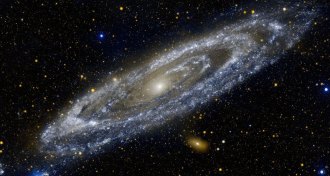 Astronomy
AstronomyIn 20th century, astronomers opened their minds to gazillions of galaxies
Telescopes in the U.S. West opened astronomers’ eyes to a vast, expanding universe containing countless galaxies.
-
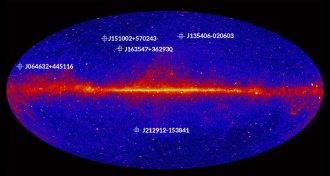 Astronomy
AstronomyFive gamma-ray blazars set new distance record
Intensely bright galaxies are the farthest blazars ever detected in gamma rays.
-
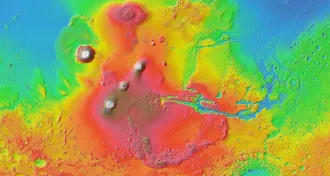 Planetary Science
Planetary ScienceRed Planet’s interior may not churn much
The magma fueling a Martian volcanic system remained largely unchanged for billions of years, analysis of a newfound meteorite suggests.
-
 Astronomy
AstronomySpin may reveal black hole history
High rate of spin could indicate that black holes formed from previous mergers of black holes.
-
 Planetary Science
Planetary ScienceOxygen atoms from Earth bombard the moon
Oxygen atoms originating from the upper atmosphere periodically bombard the moon’s surface, researchers propose.
-
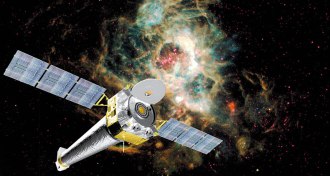 Physics
PhysicsPossible sign of dark matter shows up again
Excess of X-rays could indicate decaying sterile neutrinos.
-
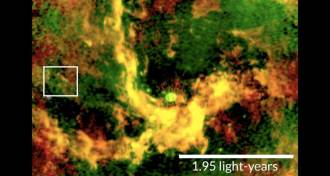 Astronomy
AstronomyConditions right for stars, planets near Milky Way’s supermassive black hole
Four clouds of gas near the galactic center have roughly the right mass to be young stars, possibly with planets.
-
 Animals
AnimalsReaders weigh in on mathematical animals and more
Animal math, dinosaur digestion and more in reader feedback from our December 10, 2017, issue.
-
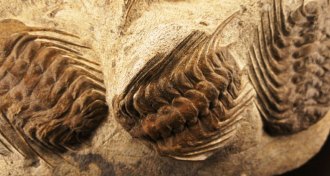 Life
LifeAsteroid barrage, ancient marine life boom not linked
Impacts from asteroid debris probably didn’t trigger the boom in marine animal diversity around 471 million years ago during the Great Ordovician Biodiversification Event.
-
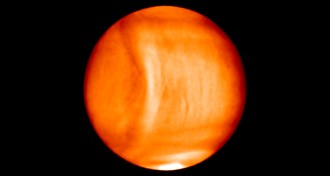 Planetary Science
Planetary ScienceWeird wave found in Venus’ wind-whipped atmosphere
A 10,000-kilometer-long gravity wave arched across the upper atmosphere of Venus. The feature may have been the largest of its kind in the solar system.